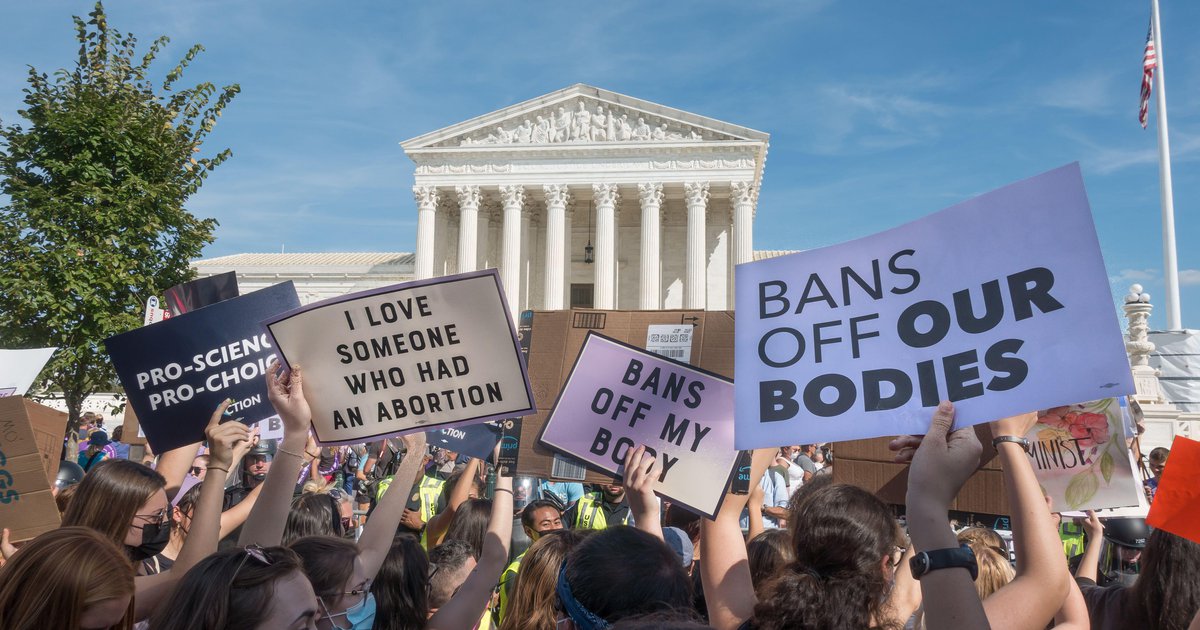On June 24, 2022, an unprecedented 6-3 Supreme Court ruling reversed the right for women to have legal and safe abortions, nullifying decades of abortion rights following the Roe v. Wade case of 1973. The decision came a month after Supreme Court Justice Samuel Alito’s opinion was leaked to the public. Now about half the states will most likely ban the procedure completely.
With a majority of the world allowing women safe and secure access to abortions, is the United States regressing back almost 50 years? Many pro-choice individuals on platforms such as TikTok made videos mocking this landmark decision, calling for “setting the clocks back 50 years”. Others argued that “guns have more rights than a female body.”
For those unaware, the 1973 Roe v. Wade Supreme Court decision gave women the constitutional right to access safe abortions. More specifically, this ruling held that the government must not excessively restrict a woman from obtaining an abortion if she chooses. In the leaked Supreme Court draft opinion, Alito maintained that “Roe was egregiously wrong from the start.” Many consider his reasoning exceptionally weak and the decision has had wide-ranging, damaging consequences. His opinion, representing the Court majority, is based on the legal philosophy “Originalism” in which the Constitution is carefully scrutinized for language, guidance, and/or direction on the issue at hand. Since the constitution did not contain any mention of abortion, thus Alito argued that abortions should not exist. On the other hand, Supreme Court Justices Sonya Sotomayor, Elena Kagen, and Stephen Breyer wrote a joint dissent, affirming that women’s equality and autonomy were “gravely damaged.”
Thirteen states, including Arkansas, Idaho, Kentucky, Louisiana, Mississippi, Missouri, North Dakota, Oklahoma, South Dakota, Tennessee, Texas, Utah, and Wyoming have trigger laws, or laws immediately enacted by circumstance. Abortion bans went into effect that same day in Alabama, Arkansas, Kentucky, Louisiana, Missouri, Oklahoma, South Dakota, Utah, and Wisconsin, all in response to the court’s decision.
President Biden commented on the pronounced verdict, stating that the White House will work to protect and defend women’s rights. Women from anti-abortion states that travel to those where abortion remains legal will not be persecuted. Likewise, New York governor Kathy Hochul declared that New York would remain a “safe harbor” for women who want and need access to abortions.
Medical health experts concur that in some cases, abortions are medically necessary. For some women, pregnancy causes strain on the heart and kidneys, giving rise to possible renal and cardiac disease. Elevated hormone levels produced during pregnancy may increase the risk of blood clots. Another case in which abortion is necessary is during an ectopic pregnancy, or when a fertilized egg implants itself outside the uterus. A fetus cannot survive outside the uterus, thus an ectopic pregnancy that is not treated will harm or kill the pregnant individual. The medical nature of abortions has engendered the movement “Abortion is Healthcare”.
This Supreme Court decision sparked controversy nationwide. Pro-choice and Pro-life activists expressed their feelings toward this ruling. The Knight News caught up with two students that asked to remain anonymous to comment on the issue. The first student, a rising junior, sympathizes with those who believe that the overturning of Roe v. Wade is a setback involving women’s rights. She also alluded that this decision may make some women fear intimacy with a man due to the consequences of unplanned pregnancies. Another rising sophomore student concurs with the idea that life begins at conception. Regardless of one’s stance on this highly polarized issue, it is important to stay informed and up to date on the latest developments.











